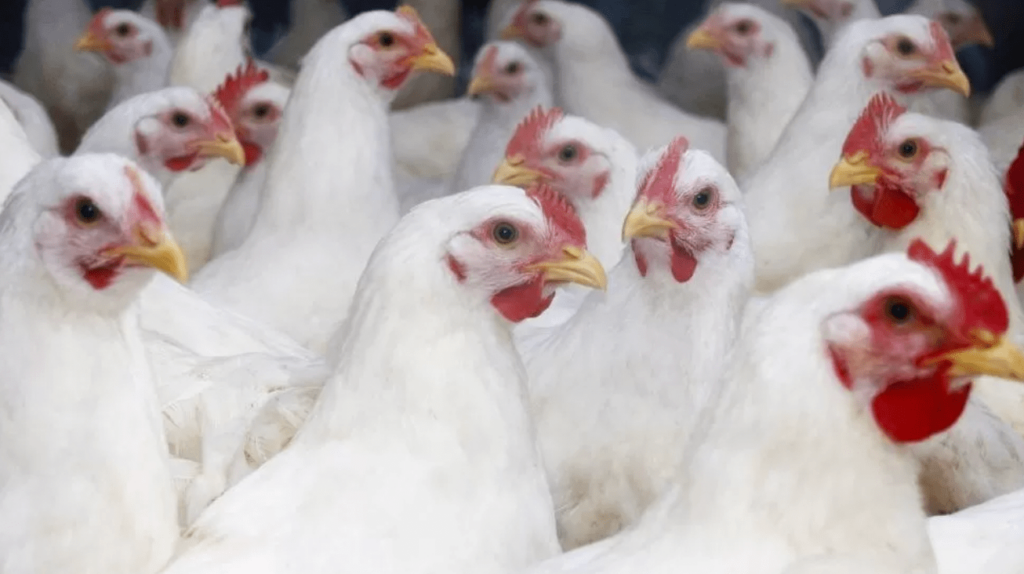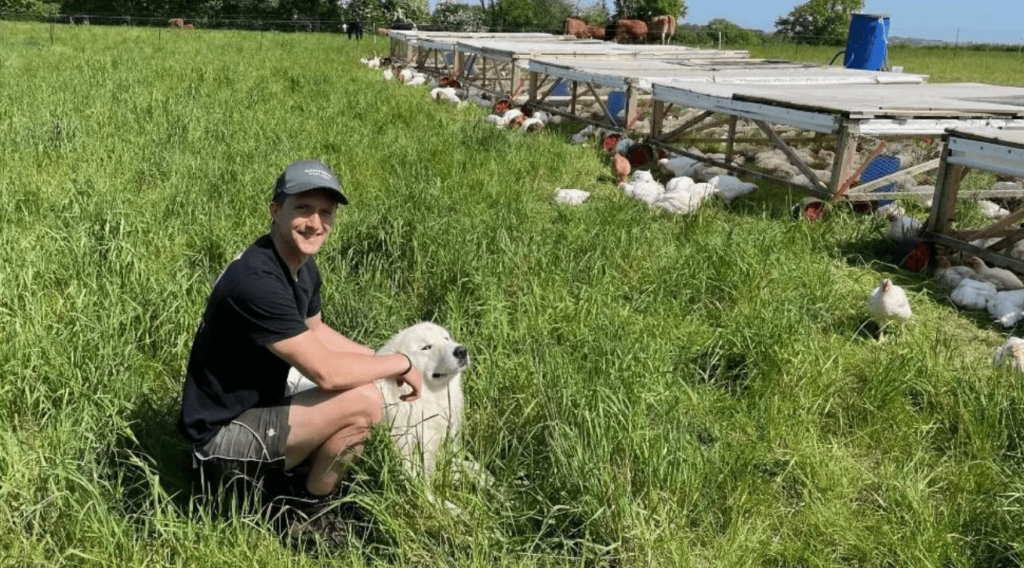Dismissal of ‘Frankenchickens’ Farming Welfare Case by Judge Highlights Rapid Growth Concerns
The high court has dismissed a legal challenge regarding the utilization of fast-growing chickens on farms in England. Animal welfare advocates, who refer to these genetically-selected breeds as ‘Frankenchickens,’ had raised concerns about their severe health problems.
The court examined allegations that the government had misinterpreted welfare regulations by permitting the farming of these chickens. However, on Wednesday, a judge ruled in favor of the defendants, dismissing the case.

In his decision, Judge Sir Ross Cranston stated that Secretary of State Thérèse Coffey had not violated her legal obligations. He further noted that she had taken into account scientific evidence and acknowledged the potential welfare issues associated with fast-growing meat chickens.
However, she believed that these chickens could be raised without detriment to their welfare, as environmental conditions play a crucial role in the health and well-being of both fast and slow-growing breeds.
Dr. Marc Cooper, the RSPCA’s head of farm animals, expressed disappointment with the outcome, considering it a significant failure in addressing the pressing animal welfare issue at hand.
According to the RSPCA, fast-growing chickens constitute approximately 90% of the UK’s yearly slaughter of over 1 billion meat chickens, also known as broiler chickens.
The Humane League UK, the organization that brought the legal challenge, criticized the judicial system for its perceived failure to protect the welfare of fast-growing chickens. They emphasized the need for better treatment of both the country and its animals.
These chickens are referred to as ‘Frankenchickens’ by animal welfare campaigners due to their long history of genetic selection aimed at maximizing meat production within the shortest possible time. They now reach slaughter weight within 34 to 36 days, a growth rate reportedly 12 weeks faster than it was 50 years ago.

Advocates argue that their rapid growth puts them at risk of various health and welfare issues, including heart attacks, lameness, bone deformities, muscle diseases, burns, and organ failure.
The Humane League UK argued in court that the Department for Environment, Food and Rural Affairs (Defra) was violating the Welfare of Farmed Animals (England) Regulations 2007 by allowing the use of fast-growing chickens. These regulations establish specific requirements for the housing and care of farmed livestock, including meat chickens.
Additionally, the League challenged Defra’s monitoring system for detecting welfare issues among these chickens.
Campaigners highlight alternative, higher-welfare farming methods, exemplified by George Ford’s approach in Nempnett Thrubwell near Bristol. Ford employs a system where he raises 1,500 pasture-raised chickens kept in mobile pens in a field. These chickens belong to a slower-growing breed and are slaughtered at the age of 77 to 80 days.
According to Ford, the use of fast-growing chicken breeds is primarily driven by the pressure exerted on farmers to continually reduce prices. He asserts that producers have been pushed to the extreme, resulting in chickens growing and being slaughtered within a mere 35 days. He believes that such practices are fundamentally flawed.
Ford further emphasizes that no farmer would willingly choose to raise birds in such conditions, but they are compelled to do so due to the prevailing low prices dictated by the industry.
In response to the case, a spokesperson from the Department for Environment, Food and Rural Affairs (Defra) expressed satisfaction with the court’s decision and stated that the government values robust animal health and welfare laws, including comprehensive requirements for the proper treatment of farm animals. They also emphasized their commitment to collaborating with the farming sector to uphold and improve existing high standards.




